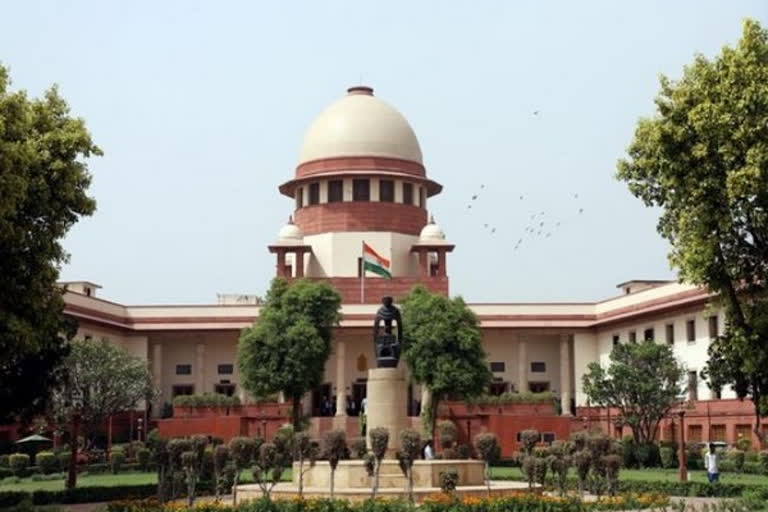New Delhi: A plea has been filed in the Supreme Court seeking directions to the Centre to ascertain the feasibility of enacting a stringent population control law to secure fundamental rights for citizens. The plea filed by spiritual orator Devkinandan Thakur said there is a need to control the population explosion to secure the basic rights of the citizens as this is the root cause of all the problems.
"The facts constituting the cause of action accrued on December 10, 2020, when the Centre said that it is against the forcing of family planning and won't take coercion action. Centre passed its obligation though 'Population Control & Family Planning' is mentioned in the concurrent list. Hence Centre can make laws and regulation policies to control population explosion, which is the biggest menace to democracy and socio-economic development. It has not even drafted a Bill till date.
"The injury caused to citizens, particularly women, is extremely large. The perils of population explosion on the economy and its ramifications are often discussed. But, the impact that repeated childbearing has on women are seldom highlighted outside the niche areas. Incidence of grand multiparity, which is defined as more than 4 viable births, in developing countries like India is 20 per cent while it is only 2 per cent in developed countries," the plea filed through advocate Ashutosh Dubey said.
The plea has submitted that the right to clean air, drinking water, health, and livelihood guaranteed under Articles 21-21A, can't be secured to all citizens without effective population control. It has also sought directions to the Law Commission of India to examine the population control laws and population control policies of the developed countries and suggest steps in order to secure the fundamental rights.
The Centre in another petition had earlier told the top court that India is unequivocally against forcing family planning on its people and any coercion to have a certain number of children is counter-productive and leads to demographic distortions. In an affidavit filed in the top court, the health ministry had said that the family welfare programme in the country is voluntary in nature, which enables couples to decide the size of their family and adopt family planning methods best suited to them, according to their choice and without any compulsion.
The submission was made in response to a PIL filed by lawyer Ashwini Kumar Upadhyay challenging a Delhi High Court order that dismissed a plea seeking certain steps, including the two-child norm, to control the country's growing population. (PTI)



